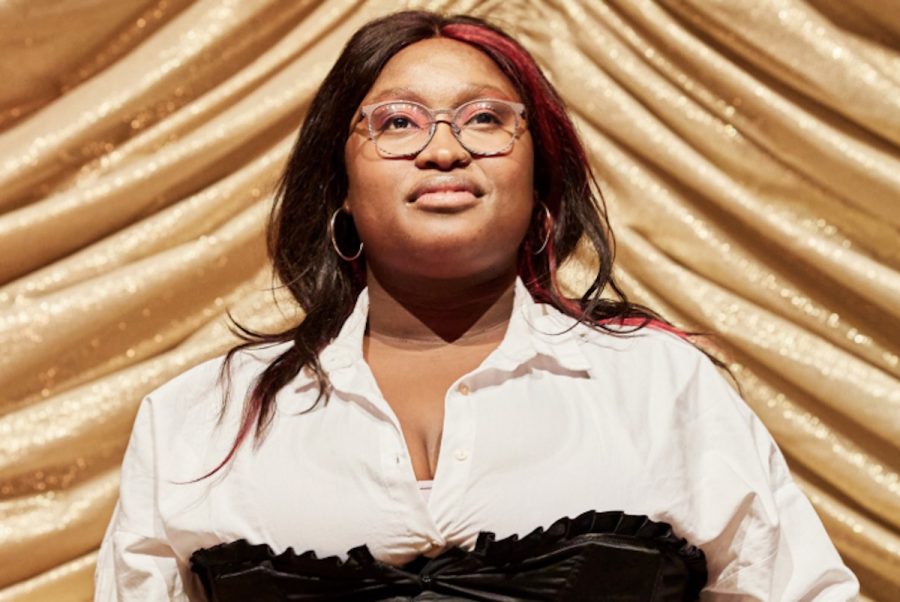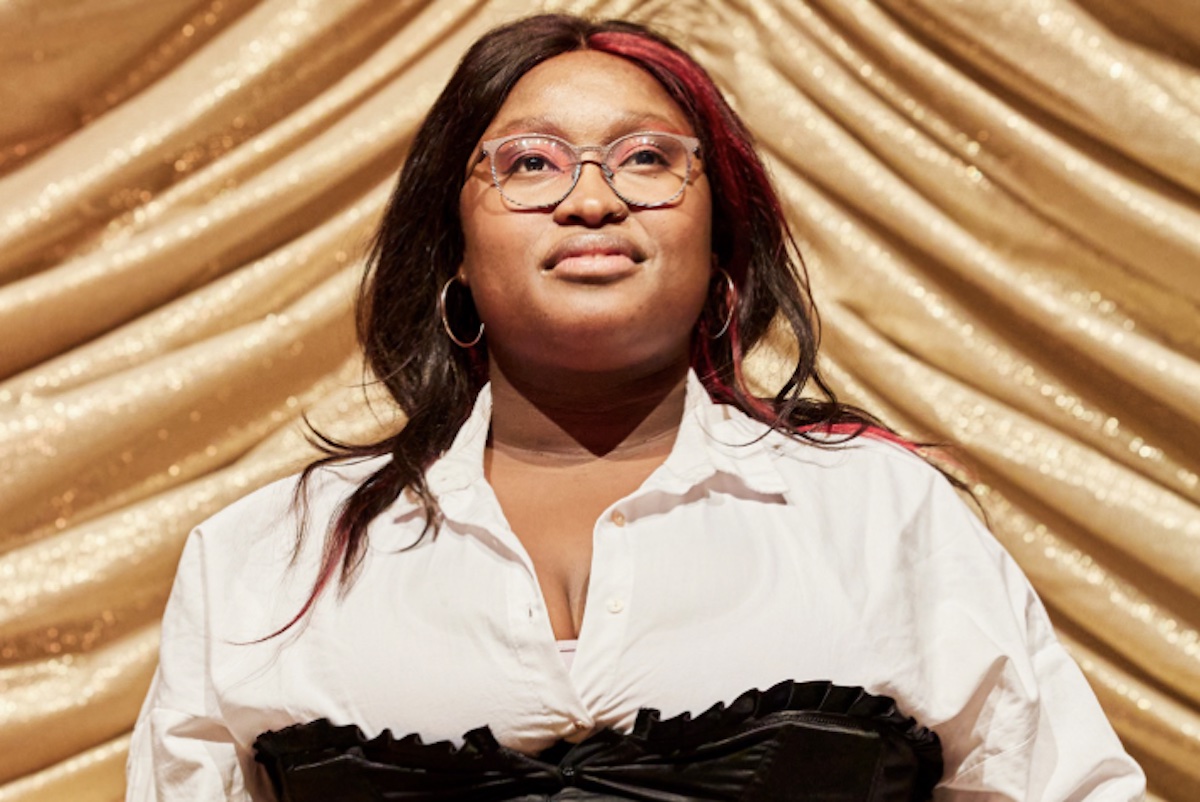
SA filmmaker’s coming-of-age comedy breaks taboos in Berlin
South African filmmaker Sandulela Asanda, was in Berlin recently with her coming-of-age concept film, ‘Mirror Mirror’, starring Luhle Macanda, Buhle Ngaba and Mpumi Sizani. The powerful, funny and provocative short film was warmly received amongst the Berlinale’s Generation14plus Programme. Sandulela, who is a graduate of the AFDA Film School in Cape Town, spoke to SAPeople […]

South African filmmaker Sandulela Asanda, was in Berlin recently with her coming-of-age concept film, ‘Mirror Mirror’, starring Luhle Macanda, Buhle Ngaba and Mpumi Sizani. The powerful, funny and provocative short film was warmly received amongst the Berlinale’s Generation14plus Programme. Sandulela, who is a graduate of the AFDA Film School in Cape Town, spoke to SAPeople about Mirror Mirror, womanhood, breaking taboos and load shedding…
‘Mirror Mirror’ is a coming-of-age comedy, featuring a mix of English and Xhosa, and showcasing the frustrating sexual self-exploration journey of Luthando, a young teenager, played by Luhle, seeking her first orgasm.
What was important for you when making ‘Mirror Mirror’?
The most important part about ‘Mirror Mirror’ was making it about the girl only. A lot of coming-of-age films are about finding a boy who then is gonna take you through that sexual experience. I wanted it to be with our main character doing that herself because I think it’s so important that you learn about your yourself and your body and being comfortable in it first before you go out in the world. It’s a lesson I wish I had learnt when I was younger, and something that even in my early 20s I was going through.
What do the concepts of female body identities and sexual self-determination mean to you?
Female sexuality and self determination is so heavily influenced by other women and I think the place it starts is with our mothers and then our friends.
My first in depth conversation was with my friends. Whereas with my mother it was a conservative instruction not to have sex (“don’t do that”) because it’s something for when you’re older and warning “that’s a thing people use to control you”. But never really “this is how you do it” or “this is how you should approach it”.
I really want to change that. I’ve watched so many ‘American Pie’ movies. For boys, male masturbation, ‘wanking’ and ‘jerking off’ are in the common language. For women it’s completely weird and taboo even now. I really want to make it normal. That’s what I wanted to do in this film.
How does media play into our understanding of sexuality and self-pleasure?
I really think we underestimate how important media is to having these conversations, to thinking about these things and being open to it. Especially being young, consciously and unconsciously we emanate a lot of what we see. I don’t think I really wanted to even kiss anyone until I saw it on TV. It became inferred that when you get to this age you need to do this, it’s a thing you need to tick off. All my friends were watching the same thing so we all believed and were trying to do the same thing.
How was your personal experience into self-pleasure?
I started masturbating relatively late, in my mid 20s. But I remember being 14 / 15 hearing my friends talking about sex and doing stuff with their boyfriends and being terrified. Because they were talking about things hurting or being pushed to do things they weren’t comfortable with but they weren’t sure because everything that we watched told us that you kind of have to go along with it or that’s what you’re supposed to be doing. I was like, “Okay, I’m not ready for this now. I’m just gonna wait.”
When I was ready I asked my friends, “How do you do this? When you started doing this did you use toys?”. Then I researched and found you can use lube as well.
There are a lot of elements to myself in Luthando’s character. But masturbating was never a thing that I was even brave enough to attempt at that age. I wish I had. I was a smart kid but when it came to relationships and my body I was so insecure because I didn’t feel ready but also I didn’t know what to do, I didn’t know where to look and it was really scary. I would have been a lot more comfortable in my body and in my romantic interactions. You realise you don’t need another person to get pleasure, you can give that to yourself.
What is your relationship with the expectations of womanhood and maternity like?
I’ve had a complicated relationship with womanhood my entire life, especially as a kid. It felt like all these rules being imposed on me for no absolute reason. I wasn’t allowed to play with boys. I couldn’t sit with my legs open even though it was more comfortable. My boobs came in and so now I had to wear a bra and I couldn’t wear mini skirts because I have to be prepared for the fact that someone might think I’m way older than I look and might assault me. All of these things I couldn’t do because of other people.
I’m a lot more active with my womanhood. I’m very intentional about the way I express myself as a woman and the way I dress because it’s my way of taking back my power. Now when I masturbate, I masturbate for myself. Not for anyone else.
How do you deal with the emotions that come with being a woman in our society from resentment to anger and distress?
I write it out. There’s so much emotional work that comes with being a women because you’re preparing for all these things. I’m so glad that I have film because I put it all there. It’s a lot. It makes me want to fight.
As a kid I remember being like 8, “Oh my gosh, I cannot wait to grow up and do everything on my own” because it looks bright and shiny and then you grow up and it’s like “Fuck this shit”. How painful periods are, always having to check if I go to this place what could happen to me… We’re told to prepare but nothing can actually prepare you for it.
What went behind naming the film ‘Mirror Mirror’?
There is this Sylvia Plath poem we read in high school. At the end of it she looks in this pool of water towards the end of her life and she talks about how she doesn’t like the reflection that looks back at her, even not recognising herself at one point.
It made me think of the intergenerational idea of womanhood being passed down from woman to woman and mother to daughter and Luthando feeling like my reflection is my mother, and I kind of wanna break that in my own way.
Later on came the Zoom calls in the film, the way the frame is set up when she’s with her best friend with that mirroring that happens with the conversation. Luthando is a mirror for her friend, Jodie, and Jodie is a mirror for her. Sharing the experience, the fears, the highs and the lows.
‘Mirror Mirror’ is a concept film for your debut feature ‘Black Burns Fast’, can you tell us more?
‘Black Burns Fast’ is a queer coming of age film. We’re almost fully financed so hopefully shooting by the end of the year. Still with Luthando, still with Jodie. Tricky thing is Buhle Ngaba is a bit older than the character Jodie. She’s like 30. She does have the energy of a 17 year old which is why I cast her.
It’s Luthando’s world but now her coming into her queer self in an all girls boarding school. A lot of our private school culture in South Africa is very traditional and colonial in a sense, from Matric dances where we have to wear all white dresses.
I also look at being a black student. In these private schools you have maybe 100 girls and only 12 are black. Even though the country’s majority black. There’s a lot of negotiating that you have to do in that space.
But it’s also about celebrating curiosity and love of self which has been the most topical, controversial thing about this film. It’s pushing these themes of self-determination, self-acceptance, self-love. Hopefully I’ll be back in Berlin for it next year!
What has your experience of the Berlinale been like?
It’s been really cold! The festival has been really interesting in terms of the people I’ve seen from different places. Everyone’s been open to different messages and formats. For a while I was worried this film was a bit commercial even though that wasn’t my intention. Everyone’s been really open to the process I’ve taken. As a filmmaker I believe in irreverence so balancing the fun and the comedy but also rooting it in reality.
What is the impact of loadshedding on filming in SA?
Trying to get generators has been really tough. Everyone now has a UPS for their router or their laptop. Trying to get generators for shoots and praying they haven’t been sold out to other production companies, especially the bigger, more international ones. If you’re a smaller team and you can’t get a generator because generators are expensive you have to work your schedule around loadshedding. It’s a nightmare. It’s just not fun.
